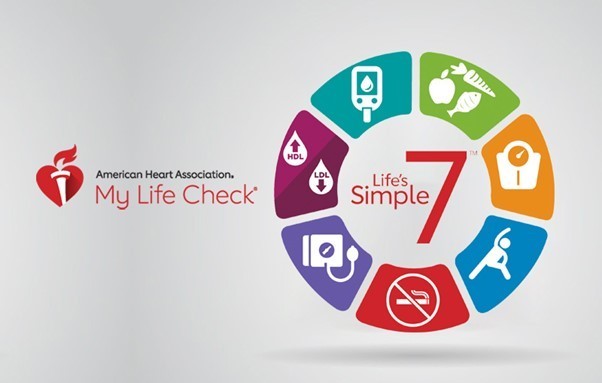Nutritional Facts About Artichokes
Artichokes contain a lot of instant nutritional perks as well as potential long-term health benefits. They’re also extremely versatile when it comes to cooking options.
Plenty of folks have never thought to eat an artichoke, mostly because it has kind of a strange look and an even stranger name. Fair.
Well, to ensure you’re not missing out, we’re intro’ing this little green goodie with everything you need to know about its nutritional value and how it translates to health boosts for your body.
You might’ve seen artichokes referred to as globe artichokes, French artichokes, or green artichokes. You might’ve also seen them being called vegetables, but they’re actually a type of thistle, which has been around for thousands of years.
An artichoke is a bulb made up of its thorny outer leaves, feathery choke, and fleshy heart. The heart is at the base of the bulb and this is what you’ll be wanting. The leaves are inedible, as is the choke unless you’re using a baby artichoke.
Eaten raw, artichokes taste slightly bitter, similar to asparagus or celeriac. When cooked (more on that later), the bitterness gives way to a milder taste that’s not unlike boiled potatoes.
They’re tasty and easy to find at the store, but are artichokes good for you? In short: yes! They pack a serious nutritional punch whether eaten raw or boiled up:
That’s a mighty little thistle, once we compare some of these values to your recommended daily intake (RDI) of certain nutrients. Artichokes contain:
- 25% (raw) or 15% (boiled) of your Vitamin C DV
- 24% (raw) or 22% (boiled) of Vitamin K DV
- 22% (raw) or 27% (boiled) of folate DV
- 19% (raw) or 13% (boiled) of magnesium DV
- 12% (raw) or 9% (boiled) of phosphorus DV
- 14% (raw) or 10% (boiled) of potassium DV
The healthy nutrient profile of an artichoke translates to a number of health benefits. For example…
Artichokes contain a boatload of antioxidants
Antioxidants protect against a huge range of health conditions by helping your body get rid of the toxic byproducts of processing oxygen. Artichokes are a potent source of antioxidants, meaning they could play an active role against:
- Heart disease
- Some cancers
- Lung disease
- Age-related eye disease
Artichokes can tell good cholesterol from bad
We’re reasonably sure that artichoke leaf extract plays a role in keeping cholesterol low – essential for your heart and your health in general. Better still, evidence suggests that the extract can balance the ‘good’ (HDL) cholesterol and the ‘bad’ (LDL) type.
Get used to artichoke leaf extract. This is what most studies use when they examine the health benefits of artichokes. It’s a concentrated version, usually sold in pill form. Very little formal research has been done on the plant itself, but we can reasonably assume its health effects will be similar to the extract.
You may be able to regulate your blood pressure with an artichoke
Studies on animals and test tube-bound cells suggest that artichokes might help keep your blood pressure steady. We know they’re a solid source of potassium, which regulates the blood. Some research also hints that leaf extract helps your body produce eNOS, an enzyme which keeps blood vessels wide enough to facilitate a healthy flow of the red stuff.
Your liver could get a boost from artichokes
Recent studies indicate that artichoke leaf extract might be good for helping your liver function. It helps repair damage done to the liver, speeding up the rate at which tissue grows back. It also increases the rate at which you produce bile, helping flush toxins out of the liver.
As with most of these benefits, we need more research before we can say for sure how they work. At our current best guess, it’s the antioxidants silymarin and cynarin that are to thank.
Artichokes might be great for digestion and IBS
Because they’re so rich in fiber, artichokes help keep things moving along nicely as far as your digestion is concerned. In particular, a type of fiber called inulin is present in artichokes. This is especially good for promoting healthy digestion.
If you have irritable bowel syndrome (IBS), inulin appears to be good for regulating gut bacteria and easing the spasms that sometimes come with the condition. Overall, the existing evidence is looking good for artichokes and your digestive system.
You can keep blood sugar low with an artichoke (maybe)
Studies have hinted that artichoke leaf extract might play a role in lowering your blood sugar levels. However, what little research in this area we have tends to mix the extract with other plants. Other studies have taken place on rats, but not humans.
The strongest evidence we have suggests that the specific enzyme which turns starch into glucose (called alpha-glucosidase) might be the key. However, we need to know more before we can say how artichokes interact with that enzyme.
Artichokes (might) fight cancer cells
The high antioxidant content packed into artichokes gives it a healthy start as a cancer-buster. More detailed studies have suggested that the leaf extract might slow the growth of cancer cells. Others indicate that the extract could have potential in other cancer therapies.
But, it’s still very early days for this research. Most studies have been done either on rats or cells contained in test tubes. We need to know more about how exactly the extract affects cancer cells in actual humans.
Artichokes are a very flexible food. You can get artichokes at pretty much any grocery store, but not all are created equal. To pick a nice ripe artichoke, look for:
- Weight. A heavier artichoke means it’s still retaining plenty of moisture, meaning it’s closer to peak ripeness.
- Sound. The leaves of a healthy artichoke should squeak against each other if you squeeze it. No squeak means dried-out leaves.
- Form. A perfect artichoke’s leaves will be opened only slightly, without too much separation. If the leaves are opened up too much, it could be too old.
Finally, you might find an artichoke whose leaves are peeling a bit. These have been hit with a touch of frost, but they’re still perfectly fine to eat. In fact, some people insist that frost-kissed artichokes are even tastier.
Artichokes can be grilled, braised, or baked. Two of the most common (also quickest and easiest) ways to prepare an artichoke, however, are steaming and boiling. In either case, you’ll need to prepare it for cooking.
To do this:
- Use a sharp pair of scissors to snip the thorny tips off the outer leaves
- Cut off the tip of the artichoke (about an inch down) using a sharp knife
- Pull off the small, looser leaves around the base and stem
- Slice off any excess stem so you’ve only got about an inch sticking out of the artichoke’s base
- Rinse your artichoke, making sure the water gets in between the leaves
To steam your artichoke (one per person):
- Toss a clove of garlic (cut into two halves), a bay leaf and a slice of lemon into two inches of water
- Put a steaming basket on top of the pot and boil the water
- Place your artichokes into the steaming basket
- Steam for 25-35 minutes until the outer leaves can easily be pulled off
If you prefer to boil your artichokes, do so in lightly salted water for 20-30 minutes. As with steaming, you’ll know it’s time to eat when the leaves are easy to peel off.
Once the heart is cooked, you can use it in:
Artichoke allergies are extremely rare, most people are at no risk from eating a cooked or raw artichoke. You may be at higher risk if you’re also allergic to other plants of the aster family (like daisies, thistles, sunflowers and kiwis).
Artichoke extract is more concentrated. It’s recommended that pregnant or breastfeeding women avoid the extract, but we don’t have enough data yet to say whether or not it’s safe.
Because artichoke leaf extract helps increase bile movement, you should probably avoid it if you have bile duct obstruction or gallstones.
Folk have been eating artichokes since the days of old, but we still need more research to know exactly how these delicious thistles really benefit our bodies. That gives them an air of mystery, but don’t feel put off trying them.
Their versatility and unique flavor might just make them your new best culinary buddy!



:quality(70)/cloudfront-us-east-1.images.arcpublishing.com/tronc/WZGIWSRHQNAZ5B7LAEQTNUHSSI.JPG)